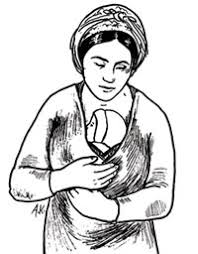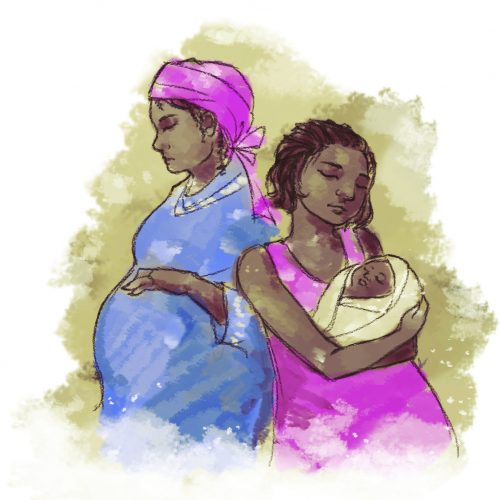SEXUAL REPRODUCTIVE, ADOLESCENT AND CHILD HEALTH (SRACH) PROGRAM
Introduction
This Programmme conducts clinical, operational, implementation and applied research in all matters related to Sexual Reproductive, Adolescent and Child Health.
Women in sub-Saharan Africa face some of the greatest sexual and reproductive challenges in the world. African women have the highest fertility, highest HIV infection rates, highest risk of dying during childbearing and they have the highest unmet need for contraception. In addition to that women in the African Region are more likely to die from communicable diseases e.g. HIV, tuberculosis and malaria, maternal and perinatal conditions, and nutritional deficiencies, than women in other regions.
Globally, about 468 million women aged 15–49 years (30% of all women) are thought to be anemic, at least half because of iron deficiency and most of these anemic women live in Africa (48–57%). In an attempt to address all these sexual and reproductive challenges facing women, adolescent and children, KEMRI developed the Sexual, Reproductive Adolescent and Child Health Program to develop, implement and evaluate effective policies and strategies related to sexual and reproductive health leading to the improvement of sexual and reproductive health outcomes throughout the life cycle.
What began as a small collaborative programme a while ago, is today it is the largest programme domiciled within the Centre for Microbiology Research at KEMRI. The Research Care and Training Program – RCTP- has the goal of conducting research, providing care and creating and supporting treatment with an emphasis on infectious diseases and with a bias towards sexually transmitted diseases including HIV.
The Programme is credited with a number of Research Trials, Capacity building in research and care, and for the implementation of an HIV care program commonly known as the Family AIDS Care and Education Services (FACES) project. It has benefited millions of people with comprehensive HIV care and treatment.

Flagship Projects
In this programme, the flagship project areas include;
- Maternal health
- Child health
- Adolescent health
- STIs
- Gender Based Violence
- Infertility
- Sexual dysfunction
- Family planning
- Harmful traditional practices
- Aging
- Gender and human rights and
- And sexual reproductive health.
Indeed, the aforementioned project areas are realized through basic, clinical, operational, implementation and applied research conducted in all matters related to sexual, reproductive, adolescent and child health.
Furthermore, KEMRI is conducting a Preterm Birth Initiative – PTBi Research in collaboration with University of California San Francisco and the Migori County government. This is being done along the Southern shores of Lake Victoria in Western regions of Kenya.
Preterm births are a major factor in the Neonatal mortality in Kenya and that is why efforts are being made to reduce the burden of preterm births, improve survival and quality of life for babies that are born before their normal term.
Through a novel approach known as Kangaroo Mother Care, preterm and low birth weight babies are constantly nursed in a concerted effort by their mothers and fathers through skin-to-skin contact and are put on exclusive breastfeeding programme to ensure early discharge.
From 2017 to 2018 an assessment was done by KEMRI on about integrating health services for pregnant women and children below 5 years of age within rural health facilities including Beyond Zero mobile clinic.
Dubbed “Beyond Zero, the study was done in Kwale and Siaya Counties both within the high malaria endemicity regions of coastal and western Kenya respectively. In its findings the study observed that most rural health facilities in Kenya including Beyond Zero mobile clinics are insufficiently equipped, have inadequately in – serviced staff and are understaffed in their capacity to provide quality health services under one roof.
However, the study recommended that regular assessment of rural health facilities including the Beyond Zero mobile clinics may form the basis for informed stocking of drugs, equipment, staffing and in–service training of health workers towards malaria pre-elimination.
At KEMRI we strive to ensure the regions accelerate actions that are geared towards the implementation of the reproductive and women’s health strategies by supporting the development of guidelines, approaches and tools to ensure universal coverage.


Achievements
Some of the outstanding achievements of the programme have been in the following areas:
- Demonstrated that Pelvic Inflammatory Diseases (PID) in HIV positive women can be treated as out-patients
- Influenced Global policy on the Pre-Exposure Prophylaxis (PrEP) among discordant couples and placed KEMRI on the global platform among the top 10 innovations of the year.
- Established Shamba Maisha as a study which is addressing the dilemma faced by those affected and infected with HIV/Aids in Africa in terms of stigma and food security.
- Transformed lives and economic status through simple small loans that has ensured food security and health of HIV-infected patients.
- Provided a platform for conducting clinical and implementation research.
